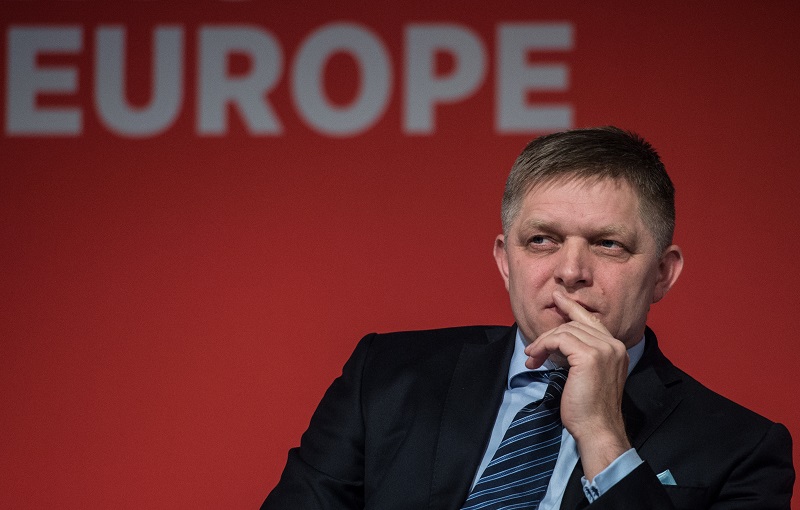Efforts by Slovakia’s prime minister to exercise control over the country’s public broadcaster are “inappropriate and unwise”, the International Press Institute (IPI) said today, urging lawmakers to allow the broadcaster to operate independent of political pressure.
In an address to Slovakia’s parliament on Thursday, the National Council, on Thursday, Prime Minister Robert Fico, speaking as chair of the Direction – Social Democracy (Smer-SD) party, announced that he would instruct deputies to make a change in the leadership of public broadcaster Radio and Television of Slovakia (RTVS).
Parliament is expected to hold an election for the head of RTVS in June, at which it will decide whether to retain or replace current RTVS Director General Václav Mika, who is nearing the end of a five-year term.
Fico blasted the broadcaster’s news coverage, accusing it of being biased and asking unfair questions, and he said he would give lawmakers “clear guidance” recommending a change in RTVS’ leadership. The call echoed Fico’s statements earlier in the week accusing the broadcaster of being “no longer a public-service” and “opposition-oriented”.
It also came as opinion polls show RTVS’ reputation for objectivity growing with the public in Slovakia.
IPI Director of Advocacy and Communications Steven M. Ellis, noting that public broadcasters cannot fulfil their vital role unless they are independent from political interference, criticised Fico’s comments as “inappropriate and unwise”.
“The prime minister’s call for parliament to interfere in RTVS’ operations risks the broadcaster’s independence and raises the troubling spectre of it becoming a pro-government mouthpiece,” he said. “Democracy demands accountability and the prime minister, as an elected leader, needs to accept the higher degree of scrutiny and the tough questions that come with the job – not seek to use his power to silence critics.”
RTVS has faced criticism from Slovak National Party (SNS) lawmakers since they joined a coalition government with Fico’s Smer in 2016. Parliament Speaker Andrej Danko, a member of the SNS, previously expressed a desire to cancel licence fees that Slovaks pay to support the public broadcaster and said he wanted to “reform” RTVS, including converting it into state television.
Mika’s tenure heading the broadcaster began amid similar allegations of pressure by Smer lawmakers. In 2012, they elected Mika head of RTVS after then-RTVS Director General Miroslava Zemková’s term was controversially cut short over her failure to inform lawmakers about the launch of a tender. Most opposition parties boycotted the vote electing Mika, calling it an effort by Smer to assert political control over RTVS.
Fico himself has had a difficult relationship with the media. In November, Reuters reported, he called journalists “dirty, anti-Slovak prostitutes” when they asked about allegations that public procurement rules had been broken for cultural events marking Slovakia’s European Union presidency.
Critics say that Fico’s remarks last week were part of a broader effort to harass critics in Slovakia’s media. That same week, the country’s Geodesy, Cartography and Cadastre Authority sent a letter to media outlets in Slovakia warning that they could face fines of up to €6,600 for using incorrect geographical names.
The letter arose in the context of Slovak media using “Britain” or “Great Britain”, rather than “United Kingdom of Great Britain and Northern Ireland”, when discussing that country’s planned exit from the EU. The move is based on a law passed in 1995 shortly after Slovakia achieved independence.
The Authority, which said it was acting on tips from the public, said it planned to hold a seminar on correct terminology before issuing fines, but Slovak journalists balked at the requirement.
“I think the letter is absurd and I will not instruct our editors to use different terms,” Beata Balogová, editor-in-chief of SME daily and a member of IPI’s Executive Board, told Reuters.



